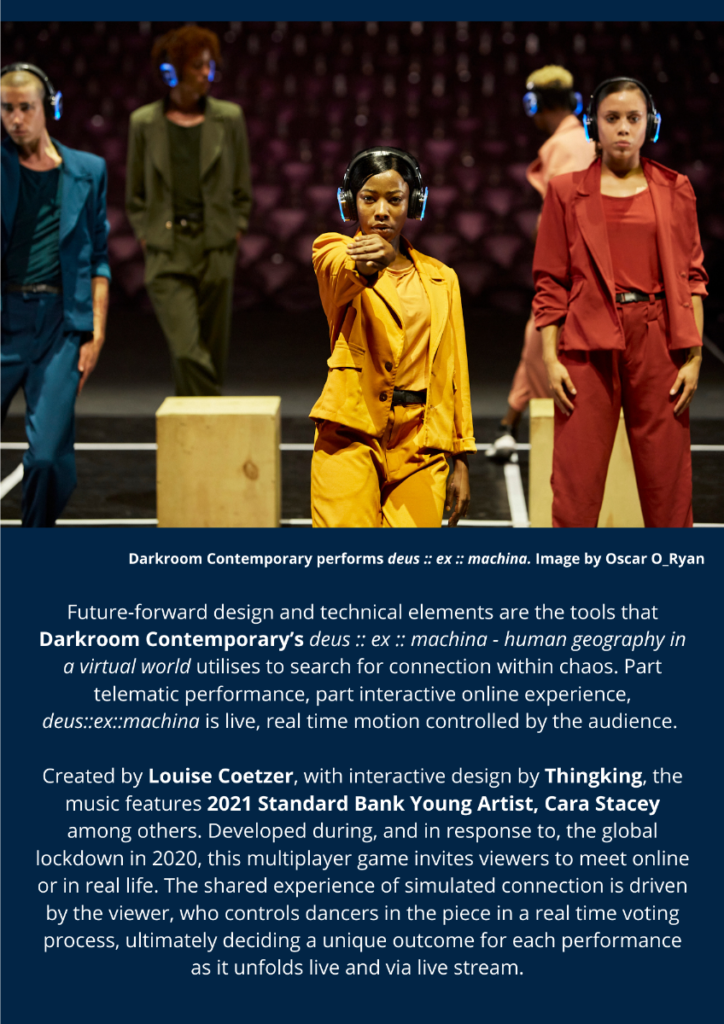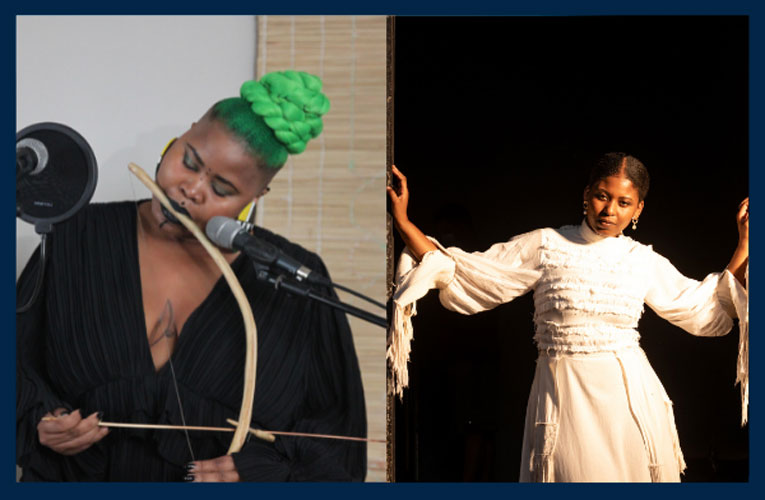Artists this year tackle issues that speak to our current times at the National Festival in Makhanda
By Edward Tsumele, CITYLIFE/ARTS Editor
The world in the past two years faced a global pandemic in Covid-19 of a scale that has not been witnessed in recent history. Some even compared it to the devastating Spanish Flu of the 20th century which left millions dead and its devastation is still talked about today by generations which were not even born then. The 1918 influenza pandemic, also known by the misnomer Spanish flu or as the Great Influenza epidemic, was an exceptionally deadly global influenza pandemic caused by the H1N1 influenza A virus, and according to Wikipedia, it killed 50 000 000 people.
It time of strife and existential threat the arts often give a window into the state of the mind of the people grappling with the devastation as well as a record of the scale and the impact of the threat as artists try to make sense of what is facing the contemporary life. Books are often written, painters paint, and theatre directors and producers out on stage engaging works that speak to times they will be living.

The Covid-19 Pandemic is no exception, at least as far as this year’s programme of the leading Arts festival in the country, National Arts Festival whose traditional home is Makhanda. However for the past two years, the festival’s normal format was disrupted by Covid-19, and instead of taking place at Makhanda with a live audience, NAF in 2020 and 2021, elected to go virtual. An attempt was made last year to have a live audience in Makhanda for some shows. However the organisers were forced to cancel as President Cyril Ramaphosa in light of the then worsening rate of infection declared yet another hard lockdown as the numbers of those being infected spiked.. The few shows that were planned to take place in Makhanda were therefore cancelled and instead went back into the virtual format of 2020.

However this year, the festival is going back to the pre 2020 format, allowing audiences to attend the festival in Makhanda in person, and many that had missed this festival in a physical format sense must be relieved that once again they will be able to attend the event in Makhnada, the eastern Cape town, whose economy over many years has depended on the festival.
This announcement by NAF that this year the festival is going to allow audiences in Makhanda is therefore not only sweet news to ears of audiences that for the past two years have been yearning for the experience of being at the festival in person, but sure to be welcomed warmly businesses that have benefitted for years from the festival. These businesses include B&Bs, hotels, restaurants, hawkers and those providing transport, such as e-hailing services, airlines and busses.
The importance the festival plays in the economy of Eastern Cape in general and Makhanda in particular, became so stark when I was there in January this year, attending academic seminars at Rhodes University. The town, which during the festival is teeming with people, was like a ghost town, and the mood was subdued in restaurants, pubs, coffee shops and B&Bs around the place. In fact I was told by one academic who teaches at Rhodes that in fact the people of Makhanda were missing the festival these days, as previously they seemed to take for granted its importance in the economic and cultural life of the town.

Some were even so naive even to complain that visitors during the festival were disturbing the take it easy rhythm of life of their town.
But now that it has been confirmed that the festival will take place in Makhanda using its traditional format, culture vultures must be asking themselves what is in store for them at the festival this year, especially in the context of the pandemic that has caused much pain and challenged people at several levels, physically, existentially, psychologically and economically.
According to NAF, there is plenty to look out for at this year’s festival as creators are said to have captured the challenges of the moment, and have come up with culturally relevant products that speak to the times we live in.
Turbulence Healing Triumph
“Stories of turbulence, healing and triumph thread through this year’s programme as the National Arts Festival returns to Makhanda and a live festival format from 23 June–3 July 2022.
2021 Standard Bank Young Artist for Visual Art, Buhlebezwe Siwani’s Iyeza is a deeply reverent exploration of the healing power of plants at a moment where people across the globe are reconsidering their relationships with the plant world. Drawing on ancient indigenous connections to the natural world and asking questions of our tendency to take its rich bounty for granted, Buhlebezwe’s own journey to heeding her ancestral calling of ubungoma, the ancient African healing tradition runs parallel to this piece. The work unfolds through a residency beginning in Makhanda in early May.
Flatfoot Dance Company’s seven ways to say goodbye emerged as we struggled to transform isolation into community after the heavy COVID lockdown. Birthed shortly after the 2021 violence and looting in KwaZulu-Natal, it’s a journal that echoes the early pillow books of Japan’s Sei Shonagon as it lists ‘seven ways to say goodbye.’
Stepping into the heartland, choreographer Lliane Loots has taken eight
dancers through a journey that asks them (and the audience) to confront the sticky, and sometimes porous relationship, we have to endings and partings. A display of gravity-defying dance and embodied story telling of the intimate and the holy, seven ways to say goodbye is a celebration of all that is sacred and beautiful,” says NAF in its marketing material ahead of the festival which takes place from June 23-3 July, 2022.

The Sabbath is a series of compositions written for string quartet by jazz singer and composer Gabi Motuba. A very personal project for Motuba, The Sabbath was created in 2020, when the pandemic was at its peak and news of loved ones perishing in a matter of days formed the backdrop to the work. Not only does the series attempt to think through a violent past and the complexities of present encounters, it also seeks to be a sanctuary for those attempting to come to terms with great tragedy.
Another musical work that is a catharsis for healing, Ingoduko gives a ‘voice’ to the Xhosa indigenous instruments uhadi and umrhubhe.
Presented by Cape Town born, and internationally trained, musician Thandeka Mfinyongo, Ingoduko honours and preserves indigenous music for a new generation but also calls for a cultural homecoming and healing.
These shows are just some of the plays, performances, exhibitions, installations and concerts on the 2022 National Arts Festival programme. The full 2022 National Arts Festival programme will be released via nationalartsfestival.co.za and visitors will also be able to buy tickets online.
.Head to Makana Tourism to book your accommodation soonest and consider extending your stay in the Eastern Cape too, for ideas and bookings go to https://visiteasterncape.co.za










